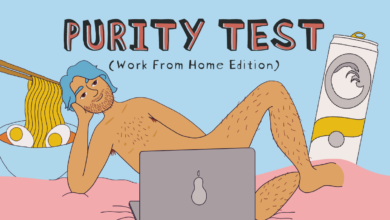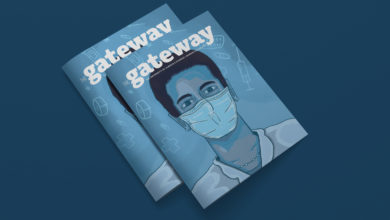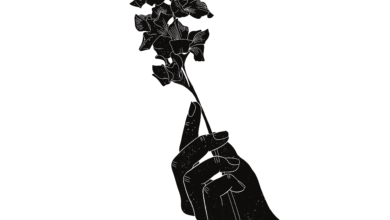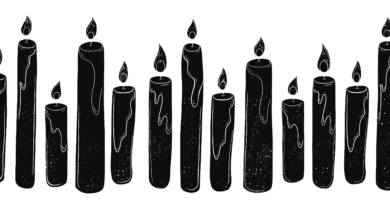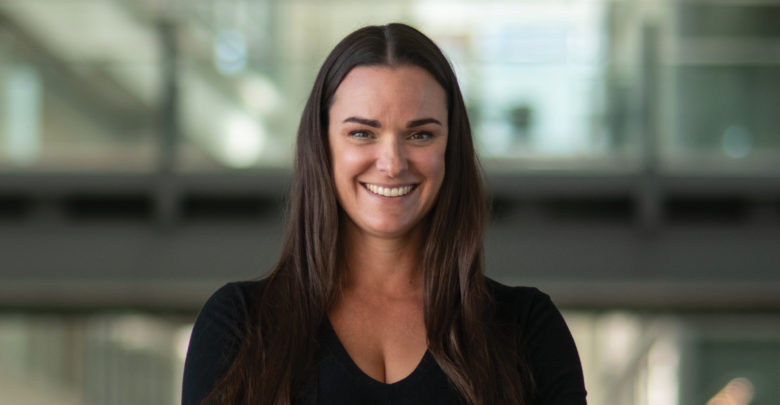 Helen Zhang
Helen ZhangTorah Hunt (Kachur) wears many hats. Having completed her BSc and PhD in molecular genetics, she is now a contract lecturer at the U of A where she teaches a variety of introductory biology and immunology courses. Hunt is also an MCAT instructor for Prep101 and a syndicated science columnist for CBC Radio One. In the past, she was a host on Science in Seconds, an educational blog and video channel, and What a Waste, a summer radio program on CBC that explored the relationship between science and waste.
I spoke to Hunt about her role as an educator and communicator as well as important issues in science.
Why did you decide to become a biology lecturer?
When I was [at] graduate school at the U of A, I loved being a TA and teaching more than anything, but I didn’t know that you could be a [professional] biology lecturer at the time. A friend of mine, with whom I did my PhD, was talking [to] someone who happened to be a faculty member at MacEwan and found out that MacEwan needed a faculty lecturer. She put my name forward and that’s how I started being a professional university instructor. Quite shortly after that, I started working at the U of A as well because I put my name forward to my old contacts at graduate school and they happened to have a Genetics 270 class available. So, it kind of fell into my lap. I never really decided that’s what I wanted to do, but I just thought it would be fun. I wasn’t sure how long it was going to last and now it’s been 10 years!
I know that you started a blog/video channel called Science in Seconds and you also hosted a show on CBC Radio called What a Waste. What have these experiences taught you about how to be an effective science communicator?
I did an intensive workshop about science communication at the Banff Centre of the Arts a while ago and that led me to start thinking about reaching beyond the classroom. Selfishly, [I started doing them] because I wanted to talk about more than just cell biology all day. I wanted to know more about the universe, I wanted to know more about quantum physics. I wanted to read about it, learn it, and digest it and then use my communication skills and my desire to teach to bring that forward [to the public].
I still work for CBC as a science columnist where every week I do digestible little chunks of science news. It’s really changed my teaching because I’ve moved from delivering material to telling stories. Now, stories don’t mean “here’s a funny story about what I did last weekend,” but a story like “this is how the cell evolves,” so it’s more of a connected story and I think that comes from my science communication background.
Speaking of your columns, you wrote a column back in September 2018 about women in Science, Technology, Engineering, and Mathematics (STEM) called Breaking the Barbie Myth. Could you talk about the main points of that piece and why these high paying research STEM jobs are predominantly filled with men?
The reality is that there are lots of initiatives to get girls into STEM from eight years old and onwards. The attrition really starts in high school where it’s seen as unique for a girl to be strong in STEM, particularly for engineering, physics, and math. With biology, it’s very women dominated; usually, 55-65 per cent of my incoming class are women [and] the highest mark in every class I teach is almost without fail a woman. Most of the old boys club were hired in the 60s and 70s and as they retire out of those positions, the positions are becoming filled with a more diverse, inclusive group. Women are still being seen as an anomaly [when they] end up in the sciences and that’s because of society, family, friends, and teachers. So, it’s really a complicated issue but it starts with high school classrooms and teachers dissuading or seeming surprised when female students do well.
Broadly speaking, what do you think is one of the most important problems or issues in science and how can we take steps to deal with it?
I think the biggest issue is a distrust of science and I think that comes from a lack of understanding the scientific method. If there’s one goal I have every week on the radio, it would be educating people about the scientific method. Now it could be about disparate topics, but I love talking about surprises in science because I think it helps the public and my audience understand that science is not goal directed. I think that it reminds them that this is just a hypothesis and that we can never prove anything in science. Once the public understands the somewhat randomness of science and the surprise, it helps scientists seem a lot more human — they don’t know everything and that’s the whole point of science. I think people want to understand science, but as soon as the scientists become poor communicators, there’s a disconnect and we start to see the rise of populism and those kinds of movements through the political sphere. Making science more humble and human I think is the biggest step.
What would be your advice for budding scientists?
Don’t worry about finding your passion. Often university and science [are] about finding what you don’t want to do and you’ll eventually land in something that you do want. I think so many people are focused on trying to find what they want — their calling, their meaning, their passion. I love teaching, but I actually got into my PhD in genetics through a clerical error. In my second year of university, I applied to the U of A [from MacEwan] and I had put microbiology as my major and genetics as my minor. When I got my acceptance letter back, it had genetics as my major and microbiology as my minor. I went back to the administration building and told them that I think there had been a mistake. They pulled out my file and said, “yes you’re right. We swapped your major and minor. You need to reapply to switch and it’s going to be $60.” I didn’t have 60 bucks to spend on someone else’s mistake, so I stayed in genetics. That’s how I ended up with something I love to do and it ended up changing the course of my life.

